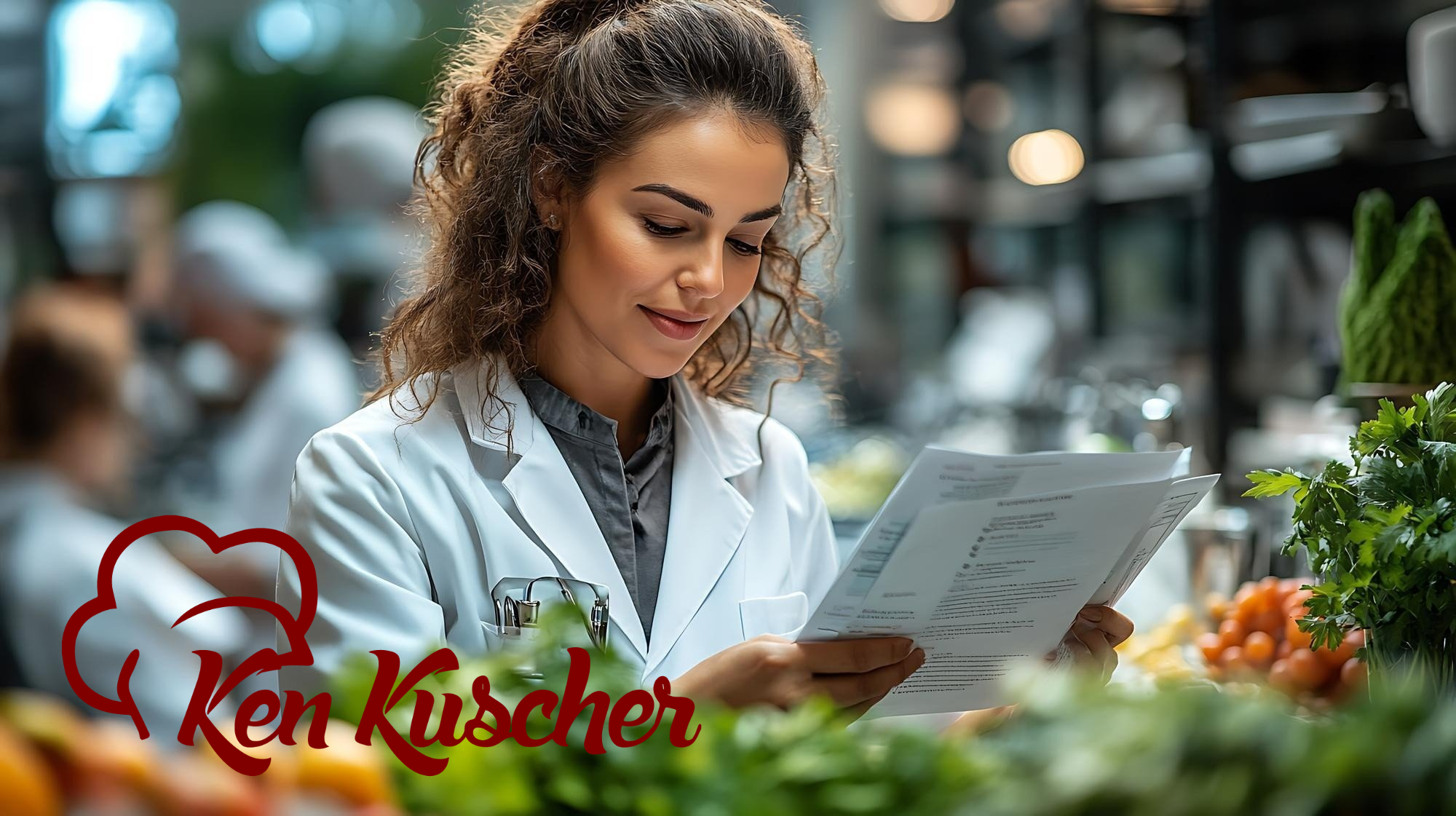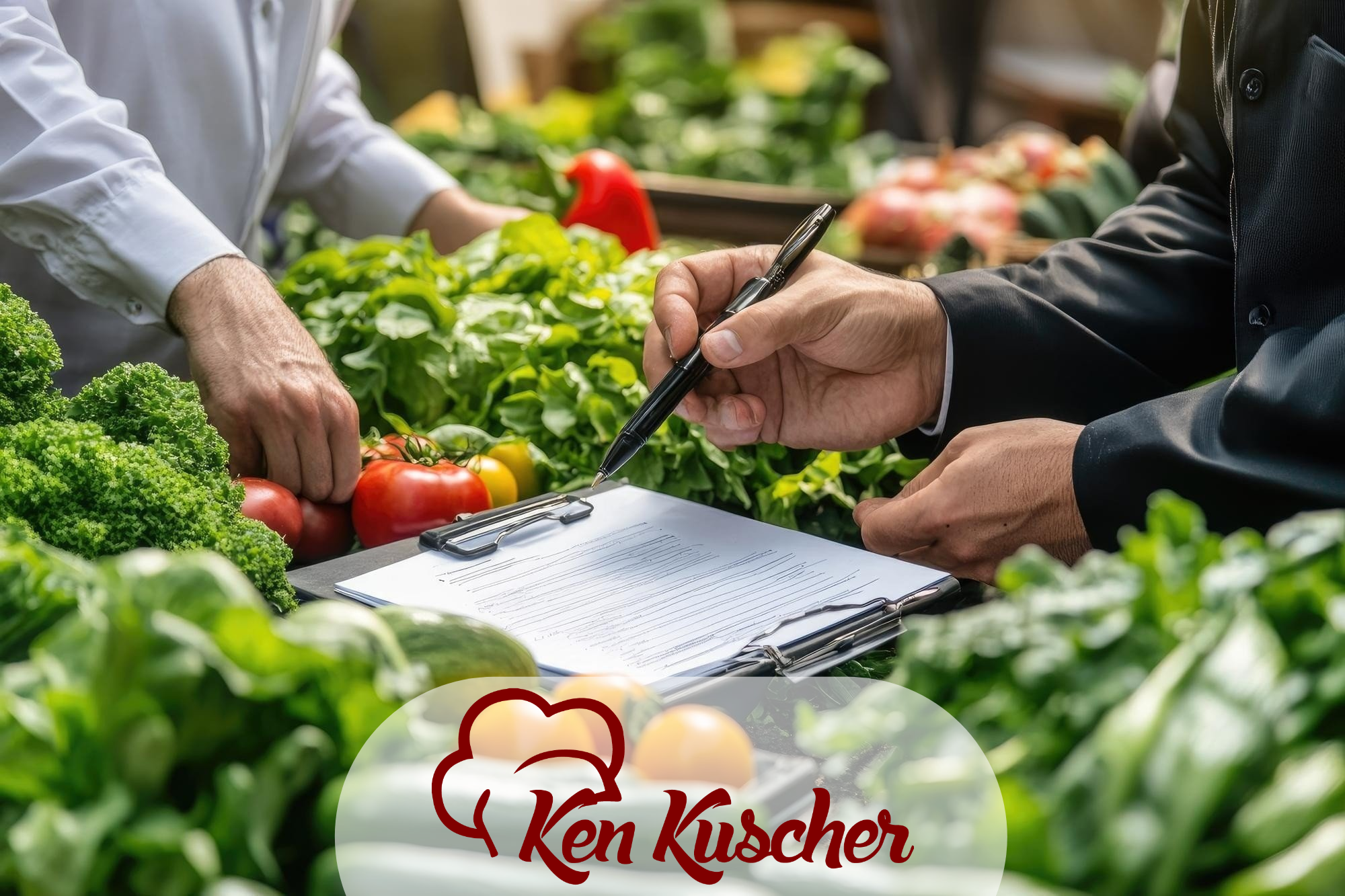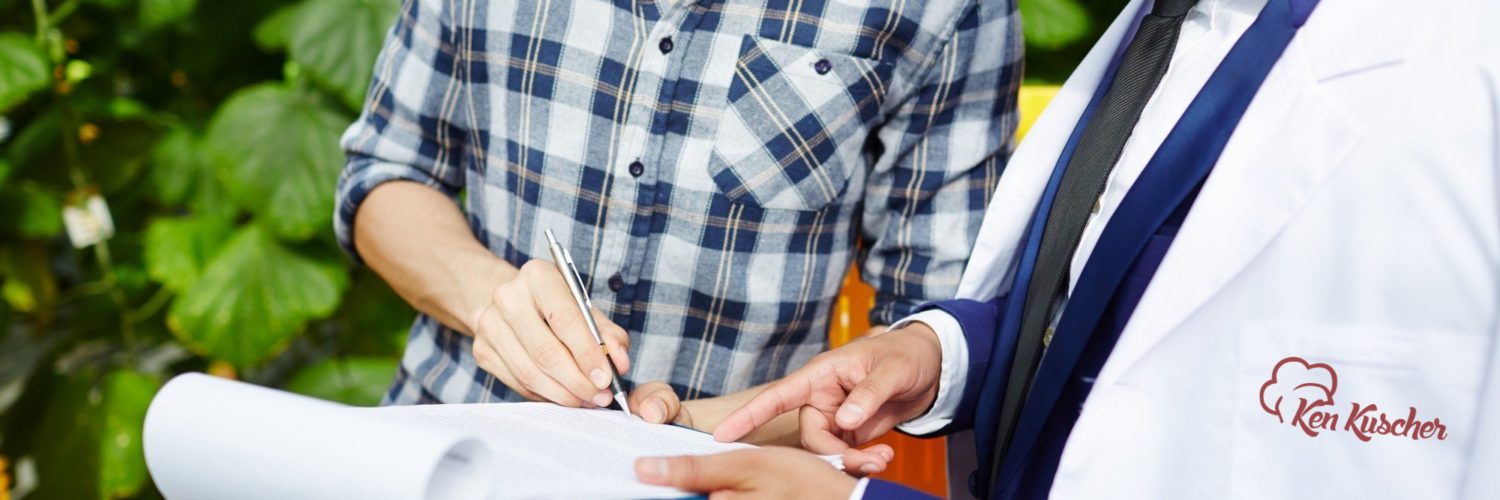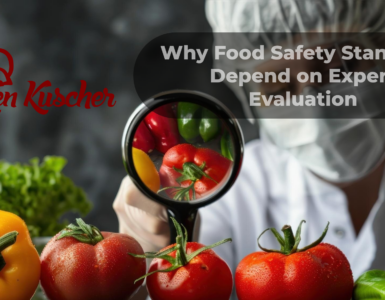The Rising Importance of Food Safety in Legal Contexts
Food safety has emerged as one of the most pressing issues in the U.S. legal landscape, shaping the way businesses and legal professionals approach liability, compliance, and risk management. Over the last decade, foodborne illness outbreaks have not only grown in frequency but also in visibility, amplified by widespread media coverage and social media platforms where consumers share experiences instantly. This heightened public awareness has created significant pressure on food-related businesses to prioritize strict compliance with health and safety standards.
In addition to consumer advocacy, regulatory bodies such as the Food and Drug Administration (FDA) and the Centers for Disease Control and Prevention (CDC) have intensified their oversight. As a result, attorneys, insurance companies, and regulatory agencies are increasingly focused on food safety as a pivotal factor in liability cases. Legal disputes often arise not only from direct harm to consumers but also from failures in documentation, training, and adherence to established safety protocols within the supply chain.
The economic and reputational stakes are undeniably high. For restaurants, food manufacturers, distributors, and service providers, even a single lapse in food safety standards can trigger costly recalls, legal action, and regulatory penalties. Businesses found negligent in maintaining food safety standards face not only financial penalties but also long-term damage to consumer trust and brand equity, which can take years to rebuild. Insurance companies have also tightened their policies, reflecting the increased risks associated with negligence claims and compliance failures.
This environment has amplified the need for professional expertise, particularly in cases requiring objective assessments of compliance and accountability. Food safety experts and consultants play a critical role in supporting attorneys by providing technical evaluations, testifying in court, and helping businesses strengthen preventive measures. Their involvement ensures that legal arguments are grounded in scientific evidence and industry best practices, ultimately influencing the outcome of litigation and settlement negotiations.
Looking ahead, the intersection of food safety and law is expected to grow even more complex, with emerging challenges such as supply chain globalization, new pathogens, and evolving consumer expectations. Businesses that proactively adapt to these demands by investing in compliance programs, employee training, and third-party audits will be better positioned to minimize risks and protect both their financial health and their reputational standing.

Regulatory Pressures Driving Legal Scrutiny
The legal landscape is shaped by stringent federal regulations that set the tone for compliance and accountability across the entire food industry. The U.S. Food and Drug Administration (FDA) establishes comprehensive safety standards governing food production, handling, and labeling [FDA]. These regulations cover everything from sanitation requirements in food processing facilities to the accuracy of nutritional information on packaging. Even minor oversights in labeling or allergen disclosures can trigger legal disputes, highlighting the immense influence the FDA holds over day-to-day business practices.
Meanwhile, the U.S. Department of Agriculture (USDA) oversees meat, poultry, and certain egg products, ensuring strict adherence to inspection protocols [USDA]. The USDA’s authority extends beyond production facilities into transportation and distribution, ensuring that every step of the supply chain complies with established safety standards. This agency’s enforcement power often becomes central in litigation, especially in cases where contamination or mismanagement occurs at the processing or inspection stage.
Complementing these efforts, the Centers for Disease Control and Prevention (CDC) collects and analyzes data on foodborne illness outbreaks, providing critical insights for prevention and response [CDC]. The CDC’s surveillance systems and outbreak reports are frequently cited in legal proceedings as evidence of systemic issues or as benchmarks for determining whether businesses acted with reasonable diligence. Attorneys often rely on CDC data to establish causation in foodborne illness cases, making the agency a pivotal player in the legal interpretation of public health risks.
Each of these agencies contributes to a regulatory framework that directly influences litigation, creating a complex environment where compliance is both a legal requirement and a business necessity. When violations or lapses occur, attorneys and insurers must interpret agency findings to build or defend cases. This process often involves navigating highly technical regulatory language and translating it into clear arguments for courts and juries.
The result is a growing reliance on expert witnesses who can translate regulatory language into clear, actionable testimony. These experts not only interpret compliance failures but also provide context on industry best practices, helping courts understand whether a company’s actions were reasonable or negligent. As regulatory standards evolve and become more rigorous, the demand for such expertise will only increase, reinforcing the critical connection between regulatory pressures and legal scrutiny in the realm of food safety.
Foodborne Illness Litigation Trends
Foodborne illness litigation has expanded significantly over the past decade, reflecting both the rise in reported outbreaks and the growing awareness of consumer rights. These lawsuits are no longer limited to isolated incidents; they often involve widespread investigations and extensive discovery processes that can expose systemic weaknesses across the food supply chain. Claims often center on negligence, product contamination, or failure to comply with health and safety standards, making litigation a powerful driver of accountability for businesses at every level, from farm to table.
In many instances, litigation arises from multi-state outbreaks linked to a single supplier, leading to class-action lawsuits that can reshape industry practices. These cases frequently attract national attention, creating both legal and reputational challenges for the companies involved. A single class-action suit can not only result in multimillion-dollar settlements but also push entire sectors to adopt stricter protocols, from improved sanitation practices to more transparent sourcing policies.
High-profile cases involving pathogens such as E. coli, Salmonella, and Listeria have underscored the devastating consequences of lapses in food safety. These pathogens are often linked to severe illnesses, hospitalizations, and in some cases, fatalities, which amplifies the stakes of litigation. The legal implications extend beyond immediate liability; regulatory agencies may impose additional sanctions, and businesses often face years of scrutiny even after a case has concluded.
These cases illustrate not only the public health risks but also the potential for massive financial liability. Restaurants, manufacturers, and distributors implicated in outbreaks can suffer significant losses in revenue due to recalls, operational shutdowns, and long-term brand damage. Insurance providers have also begun adjusting their coverage models to reflect the heightened risks associated with foodborne illness litigation, further increasing the financial pressures on businesses.
Attorneys increasingly rely on expert testimony to establish causation, demonstrate compliance failures, or refute claims of negligence. Expert witnesses play a vital role in breaking down complex scientific data, explaining chain-of-custody protocols, and clarifying whether businesses adhered to industry standards. In cases where multiple parties are involved, expert analysis often determines how liability is apportioned, influencing the outcome of settlements and trial verdicts.
Looking forward, foodborne illness litigation is expected to grow more complex with the globalization of food supply chains, the rise of online meal delivery services, and the increasing use of automation in food processing. As these new variables enter the landscape, attorneys and courts alike will face fresh challenges in determining liability and ensuring accountability, making food safety an even more critical focus in legal contexts.
The Expanding Role of Expert Witnesses in Food Safety Cases
Expert witnesses play a critical role in modern food safety litigation, often serving as the decisive factor in whether a case is resolved in favor of the plaintiff or the defense. As the legal landscape grows more complex, courts increasingly depend on these specialists to provide clarity in areas where scientific knowledge and legal reasoning intersect. Their testimony carries significant weight, not only because of their technical expertise but also because of their ability to communicate highly detailed information in a way that judges and juries can easily understand.
Food safety experts provide essential insights in several areas:
- Tracing sources of contamination in supply chains. Experts analyze the journey of food products from production to consumer purchase, identifying weak points where contamination may have occurred. This analysis is particularly valuable in multi-state outbreaks, where pinpointing the exact source can be a decisive factor in establishing liability.
- Evaluating adequacy of food handler training programs. Courts often require evidence that staff were properly trained in food safety procedures. Expert witnesses review training protocols, employee compliance, and ongoing education efforts to determine whether businesses met industry standards or fell short.
- Assessing compliance with federal and state regulations. Food safety litigation frequently hinges on whether businesses adhered to the requirements set forth by agencies like the FDA, USDA, and local health departments. Experts provide detailed evaluations of compliance records and highlight areas where companies either met or violated regulatory expectations.
- Reviewing records of inspections, certifications, and corrective actions. Inspection reports, audit results, and corrective action plans are often technical and difficult to interpret. Expert witnesses examine these documents and present them in a clear, contextualized manner that demonstrates whether the business acted responsibly or negligently.
Attorneys turn to expert witnesses to simplify complex technical matters for judges and juries. Without this translation of scientific data into accessible language, cases can become bogged down in details that obscure key issues of liability. Their ability to bridge the gap between scientific data and legal argumentation makes them indispensable in court.
Beyond the courtroom, expert witnesses also influence settlement negotiations, as their preliminary assessments often shape how both plaintiffs and defendants view the strength of their positions. In some cases, the presence of a highly credible expert can prompt early resolution, avoiding lengthy and costly trials.
As food safety litigation continues to evolve, the role of expert witnesses is expected to expand even further. With emerging challenges such as global supply chains, new food technologies, and evolving pathogens, courts will increasingly rely on professionals who can provide specialized insights into these dynamic issues. This expanding role underscores their importance not only in determining case outcomes but also in shaping broader industry standards and compliance practices.

Qualifications That Define a Food Safety Expert Witness
The qualifications of a credible food safety expert witness extend beyond academic credentials, reflecting a balance of formal education, practical industry experience, and demonstrated expertise in regulatory compliance. While degrees in food science, microbiology, or public health can provide a strong foundation, courts often place greater emphasis on whether the expert has applied this knowledge in real-world settings. Practical experience in the food industry, regulatory compliance, and training programs adds significant weight to testimony because it demonstrates not only theoretical knowledge but also operational understanding of how safety standards are implemented on the ground.
Certifications such as florida food handler certificates and food handler certificates florida represent not only regulatory compliance but also practical competence in safety protocols. These certifications serve as tangible evidence that an expert is trained in current best practices and capable of evaluating whether food businesses have met essential safety requirements. In cases involving restaurants or service providers, the ability to reference such credentials adds credibility and underscores the expert’s familiarity with state-specific requirements that can influence litigation outcomes.
Additional qualifications often include:
- Direct experience in restaurant and food service management. Firsthand management experience provides valuable insight into how training, operations, and compliance are handled in real-world environments. Experts with this background can evaluate whether safety lapses were systemic or isolated.
- Familiarity with Hazard Analysis Critical Control Point (HACCP) systems. Since HACCP protocols are central to modern food safety management, experts well-versed in these systems can identify whether businesses have adequately assessed and mitigated risks at critical stages of production and distribution.
- Knowledge of federal, state, and local food safety regulations. A strong grasp of regulatory frameworks, from FDA and USDA requirements to state-level health codes, enables experts to assess whether businesses adhered to or violated governing laws, which often becomes central to litigation.
- Proven history of courtroom testimony. Courts look for experts who can not only analyze evidence but also communicate findings clearly and persuasively. A track record of credible testimony demonstrates that the expert is both reliable and effective under cross-examination.
These attributes position experts to deliver persuasive, evidence-based opinions that courts can rely on. Their credibility often shapes the strength of a legal argument, making the selection of a qualified food safety expert witness one of the most critical decisions attorneys face in litigation.
Moreover, as food safety cases grow more complex, courts increasingly expect experts to demonstrate interdisciplinary knowledge, bridging microbiology, regulatory law, and industry practice. This combination of qualifications ensures that expert testimony not only withstands legal scrutiny but also provides meaningful guidance for judges and juries tasked with interpreting technical issues.
How Food Safety Expertise Supports Law Firms and Insurance Companies
Law firms and insurance companies face significant challenges in evaluating foodborne illness claims, as these cases often involve complex chains of evidence, multiple potential points of contamination, and highly technical regulatory requirements. Without specialized knowledge, it can be difficult to determine whether a business acted negligently, whether a claimant’s illness was directly tied to a food product, or whether liability should be apportioned among several parties. This is where food safety expertise becomes indispensable, bridging the gap between scientific data, industry practices, and legal strategy.
Expert witnesses provide clarity in several critical areas:
- Determining the validity of claims through scientific analysis. By reviewing laboratory reports, medical records, and epidemiological data, food safety experts can confirm whether a specific pathogen was responsible for an illness and whether it can be traced back to the defendant’s operations. This scientific validation is often the foundation of a strong legal argument.
- Assessing whether alleged safety violations meet the threshold of negligence. Not every procedural misstep constitutes negligence. Expert witnesses evaluate whether a business failed to meet established safety standards and if such failure directly contributed to harm. Their testimony helps courts distinguish between unavoidable risks and preventable lapses.
- Advising on settlement strategies based on risk assessment. For law firms, expert opinions guide whether to pursue litigation or negotiate a settlement. Insurance companies, meanwhile, rely on these insights to calculate exposure, set reserve amounts, and determine whether defending a claim in court is cost-effective.
- Delivering impartial testimony to enhance the credibility of a case. Courts place high value on objectivity. Expert witnesses who present balanced, evidence-based opinions can lend credibility to the side they represent, whether plaintiff or defense, by demonstrating impartiality rooted in science rather than advocacy.
By leveraging expert insights, legal professionals can build stronger arguments and insurance companies can make informed decisions regarding claims. For attorneys, expert analysis often uncovers overlooked details—such as improper storage temperatures, inadequate staff training, or missed inspection red flags—that can fundamentally shift the direction of a case. For insurers, having access to precise evaluations ensures that claims are paid only when liability is justified, helping to manage financial risk while maintaining fairness to claimants.
As foodborne illness litigation continues to grow in scale and complexity, the partnership between food safety experts, law firms, and insurance companies is likely to deepen. With globalization, cross-border supply chains, and evolving consumer expectations introducing new risks, expert testimony will remain a cornerstone of legal and financial decision-making in food safety cases.
The Impact on Restaurants and Food Service Businesses
Restaurants and food service businesses are at the forefront of food safety litigation. As public-facing establishments, they carry heightened exposure to liability claims stemming from foodborne illness incidents. Proactive measures are essential to mitigate these risks.
Compliance with training requirements such as the florida food handlers card is critical to reducing liability exposure. In cases where disputes escalate, engaging a restaurant expert witness or food service expert witness provides critical support. Their testimony can validate operational practices or highlight deficiencies that influenced outcomes.
For businesses, expert engagement is not solely a defensive strategy. It also demonstrates a commitment to transparency and accountability, which can help restore consumer confidence after an incident.
Ken Kuscher’s Authority in the Field
Ken Kuscher has established himself as a trusted authority in food safety and litigation support. With decades of experience in regulatory compliance, training, and industry best practices, Mr. Kuscher has built a reputation as a reliable food safety expert. His qualifications extend to serving as a florida food expert witness, where his deep understanding of state-specific requirements complements federal expertise.
Mr. Kuscher’s work includes testimony in cases involving restaurants, suppliers, and food service organizations. His insights are valued by law firms, insurance providers, and businesses navigating complex disputes. By combining regulatory knowledge with practical experience, he brings credibility and balance to food safety litigation.
The Future of Food Safety Litigation and Expert Testimony
The demand for expert testimony in food safety cases is expected to grow in the coming years. Several trends are shaping this future:
- Digital evidence: Increased reliance on electronic temperature logs, supply chain records, and compliance databases.
- Globalization of supply chains: More cases involving imported products and cross-border disputes.
- Emerging pathogens: Legal responses to novel foodborne illnesses and antibiotic-resistant bacteria.
As the industry evolves, expert witnesses with broad experience and adaptive skills will be critical to addressing new challenges in food safety litigation.
Moving Forward with Trusted Expertise
The legal environment surrounding food safety is becoming increasingly complex. Attorneys, insurance companies, regulatory agencies, and businesses must be prepared to navigate this landscape with the support of qualified professionals. Engaging a seasoned expert witness ensures that cases are grounded in accurate, credible, and unbiased analysis.
Those seeking proven expertise in this field are encouraged to explore the services of Ken Kuscher, whose extensive experience as a florida food expert witness, food service expert witness, and restaurant expert witness makes him a valuable resource in complex litigation. More information is available on his services, certifications, and florida food handler certificates best price through his official site at Ken Kuscher.





